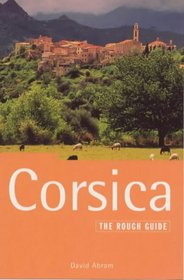Search -
The Rough Guide to Corsica, 3rd Edition (Rough Guides)
The Rough Guide to Corsica 3rd Edition - Rough Guides
Author:
Introduction Around one and a half million people visit Corsica each year, drawn by a climate that's mild even in winter and by some of the most astonishingly diverse landscapes in all of Europe. Nowhere in the Mediterranean has beaches finer than Corsica's perfect half- moon bays of white sand and transparent water, or seascapes more inspiri... more »
Author:
Introduction Around one and a half million people visit Corsica each year, drawn by a climate that's mild even in winter and by some of the most astonishingly diverse landscapes in all of Europe. Nowhere in the Mediterranean has beaches finer than Corsica's perfect half- moon bays of white sand and transparent water, or seascapes more inspiri... more »
ISBN-13: 9781858286006
ISBN-10: 185828600X
Publication Date: 8/1/2000
Pages: 384
Edition: 3rd
Rating: ?
ISBN-10: 185828600X
Publication Date: 8/1/2000
Pages: 384
Edition: 3rd
Rating: ?
0 stars, based on 0 rating
Genres:
- Travel >> Europe >> France >> General
- Travel >> Europe >> France >> Corsica
- Travel >> Europe >> General
- Travel >> Europe >> Italy >> General
- Travel >> Reference >> Guidebooks
- Travel >> Travel Writing
- Travel >> Guidebook Series >> Rough Guide




